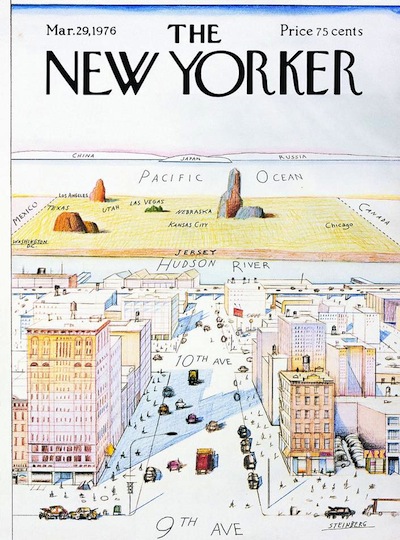 This is a guest post from Lucian M. Ashworth, and the first in our series on The Global Colonial 1914-18. Lucian is Professor and Head of the Department of Political Science at Memorial University of Newfoundland. His current research focuses on the history of international Relations (IR) theory, and on the disciplinary history of IR. This builds on a number of previous interventions on the politics and history of the inter-war period (including on the absent idealists, the early feminist IR of Helen Swanwick, and Halford MacKinder as League supporter). He is the author most recently of A History of International Thought. From the Origins of the Modern State to Academic International Relations, published by Routledge in 2014.
This is a guest post from Lucian M. Ashworth, and the first in our series on The Global Colonial 1914-18. Lucian is Professor and Head of the Department of Political Science at Memorial University of Newfoundland. His current research focuses on the history of international Relations (IR) theory, and on the disciplinary history of IR. This builds on a number of previous interventions on the politics and history of the inter-war period (including on the absent idealists, the early feminist IR of Helen Swanwick, and Halford MacKinder as League supporter). He is the author most recently of A History of International Thought. From the Origins of the Modern State to Academic International Relations, published by Routledge in 2014.
A common response from many opponents of Michael Gove’s ill-informed presentation of the First World War as a just cause has been to write the war off as one that was caused by the imperialism of the great powers. In this view those who died were victims of an imperial system.[1] By seeing the war as primarily an imperialist conflict it is possible to simultaneously denounce the pre-1914 imperial order and also to oppose the war. It is, therefore, a handy position that avoids any moral dilemmas.
At the same time, it is interesting that amongst all these debates about the causes and nature of the war few scholars have seen fit to examine one form of evidence: the writings of international experts before the war. This gap is even more surprising in International Relations (IR), as these pre-war writers are IR’s forebears. What is interesting about studying these pre-war international writers is that they were well aware of the imperialist nature of their global society (and of the role played by colonial control), but it was not this imperialism that was seen as the source of instability. Rather, a more complex story emerges of a two-tier global system, and the coming of the war is seen as a threat to, not a result of, imperialism.
The first point about the pre-1914 world is that this was a thoroughly recent system, and that for many of those writing on international affairs it was novel because for the first time in history there was a truly global order. Whether it was W. T. Stead writing about the movement away from states to a Europe united by transnational links, Paul Reinsch’s examination of the new ‘public international unions’, or Norman Angell’s wonder at the development of the global economy in trade and finance, the common feature was the recognition that the world from the late nineteenth century was global in a way that was thoroughly unprecedented.[2]
Much of this new politico-economic order was built on one product: coal. Timothy Mitchell has outlined how the growing dependence on coal as a concentrated source of energy radically changed society into an industrial ‘hydrocarbon civilisation’. The combination of coal, steel and steam powered railways allowed for the easy extraction, transportation and use of coal in industry.[3] This rapid industrialisation made the new industrialising societies vulnerable in a way they had never been before. The loss of self-sufficiency in food and the requirements of industry for a growing list of raw materials not often available in north-western Europe or eastern North America meant that these societies were dependent on trade with often distant societies. Yet, trade alone was not sufficient to extract these raw materials, so European powers increasingly turned to direct control and the deliberate imperial restructuring of the non-European economies.[4] This creation of a two-tier fully global economy was well-known to the political economists of the time.[5]
Two very different writers who captured the nature of this new global order were the American admiral Alfred Thayer Mahan, and the British journalist and political activist Henry Noel Brailsford. Mahan was an advocate of a higher level of armaments and a notorious racist. Brailsford, by contrast advocated stronger representative international organisations. Despite the wide divergence in their political opinions, both came to not incompatible conclusions about the nature of the global order before the First World War, and both understood the two-tier nature of the global political economy. The major difference in approach was that Mahan supported the imperial status-quo, while Brailsford opposed it. Continue reading











